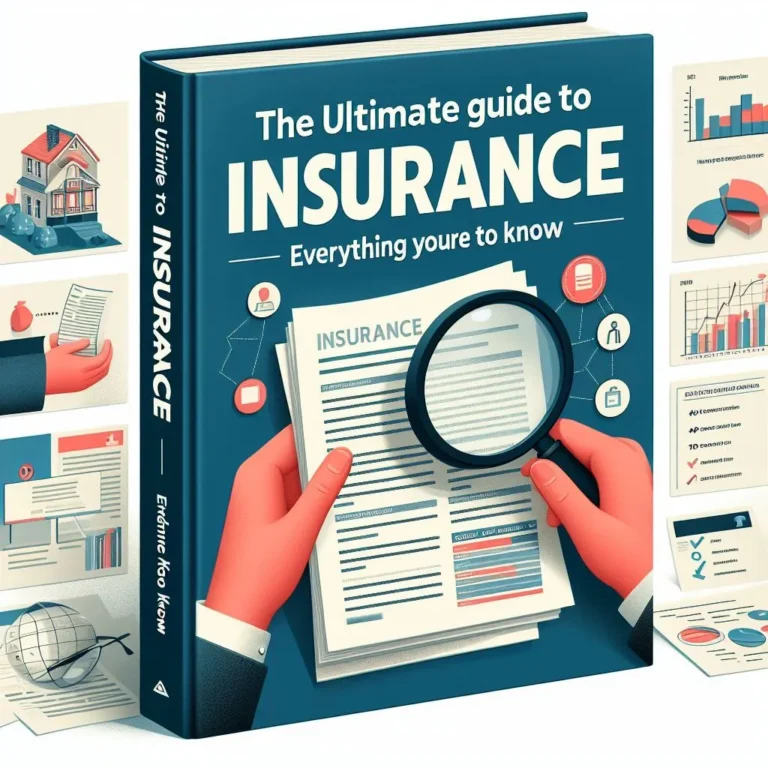Guide to Insurance
Understanding Insurance:
Insurance is a risk management tool. In simpler terms, it’s a contract between you (the policyholder) and an insurance company. You agree to pay regular payments (premiums) in exchange for the company’s promise to financially assist you if you encounter a specific covered event.
Types of Insurance:
Life’s unpredictable, and different situations require specific safeguards. Here are some common types of insurance:
- Life Insurance: Provides a death benefit to your beneficiaries (chosen individuals) if you pass away. This financial cushion can ease their burden during a difficult time.
- Health Insurance: Covers a significant portion of your medical expenses, including hospitalization, doctor visits, and medications.
- Home Insurance: Protects your house and belongings from various perils like fire, theft, natural disasters, or even vandalism.
- Auto Insurance: Pays for repairs or replaces your vehicle in case of accidents, theft, or damage caused by natural events. It can also cover medical bills if you injure others in an accident (liability coverage).
- Business Insurance: Shields your business from financial losses due to property damage, lawsuits (liability), or even interruptions in operations.
Choosing the Right Insurance:
Selecting the right insurance requires careful consideration:
- Identify your needs: Analyze the risks you want to protect yourself against. Do you prioritize financial security for your family if you’re no longer around (life insurance), or safeguarding your business from potential lawsuits (liability insurance)?
- Coverage amount: Determine the appropriate level of financial protection. Consider factors like property value, potential medical costs, or desired income replacement in case of your absence (life insurance).
- Cost comparison: Don’t settle for the first quote. Research and compare rates offered by different insurance providers.
- Company reputation: Look for insurers with a strong financial standing and a positive track record of claim settlements.
Getting the Best Deal:
Being a smart insurance buyer involves:
- Shopping around: Obtain quotes from multiple insurance companies to compare coverage options and pricing.
- Discounts: Many insurers offer discounts for factors like good driving records, bundling multiple policies, or owning safety features in your home or car.
- Deductible: This is the initial amount you pay before the insurance kicks in. Increasing your deductible can lower your premium, but remember you’ll shoulder a larger cost if you need to file a claim.
- Bundling: Consider bundling your home and auto insurance with the same company. This often leads to significant cost savings.
The Importance of Insurance:
Having adequate insurance provides peace of mind. It acts as a financial safety net, shielding you and your loved ones from the burden of unexpected expenses during challenging times.
Beyond the Basics:
This guide serves as a foundation. Remember, insurance is a vast subject with various policy details, exclusions, and complexities.
- Consult a licensed insurance agent: They can assess your individual needs and recommend suitable coverage options.
- Read the fine print: Meticulously examine the policy documents to understand what’s covered, exclusions, claim procedures, and renewal terms.
By being informed and proactive, you can secure the right insurance plan that safeguards your well-being and financial security in the face of unforeseen circumstances.tunesharemore_vert

